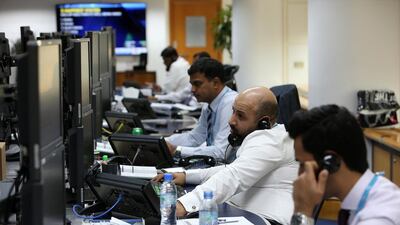For the past few years of the Greek crisis, one particular number has been repeatedly cited: 2,017. This is the number of hours worked by the average Greek worker, as determined by the OECD – more than any other European country. At the other end of the scale is Germany, where the average worker put in just 1,408 hours a year. Greeks, in other words, put in a staggering 40 per cent more working hours than Germans.
And yet, a casual glance at their respective economies shows how weak the correlation is between hours worked and the final economic output. Indeed, not only is the correlation weak, it might even be inverted: when Spain, Italy and Portugal all put in long hours, one would be forgiven for thinking lengthy hours don’t lead to greater productivity.
All of which ought to form an instructive lesson for those UAE companies that, as The National reported yesterday, have sought to get their workers to make up extra hours “lost” due to Ramadan. Despite the law requiring all staff, regardless of religion or nationality, to have their working day cut by two hours during Ramadan, the Ministry of Labour has pointed out that some companies have not kept up with the law.
They have not kept up with the law, nor have they kept up with the times. The idea that productivity is related to hours worked feels like a throwback to the 1980s, or even before that. In technical economic jargon, this is labour productivity, and it has been superceded in recent decades by the equally wonky-sounding “total factor productivity” – the idea that some economic results can’t be explained merely by the money spent and the hours worked.
A quick glance around any modern office should show that to be true. Long hours do not equal better results – indeed those workers who are smart, efficient and understand which jobs are the most pressing are often those who contribute most to the bottom line. And there are few better ways to improve your efficiency than to think of the meal waiting for you at the end of a day’s fasting.

